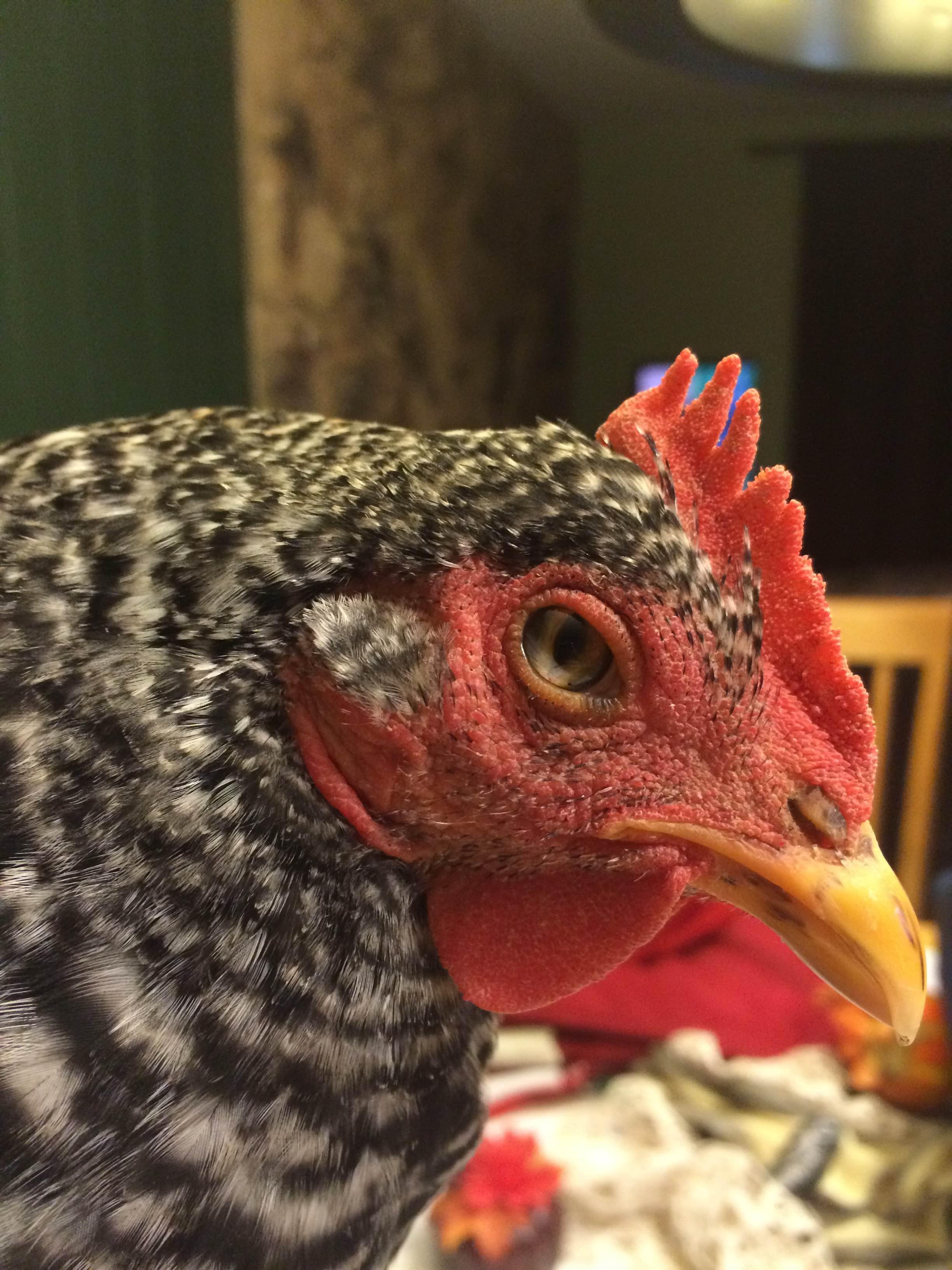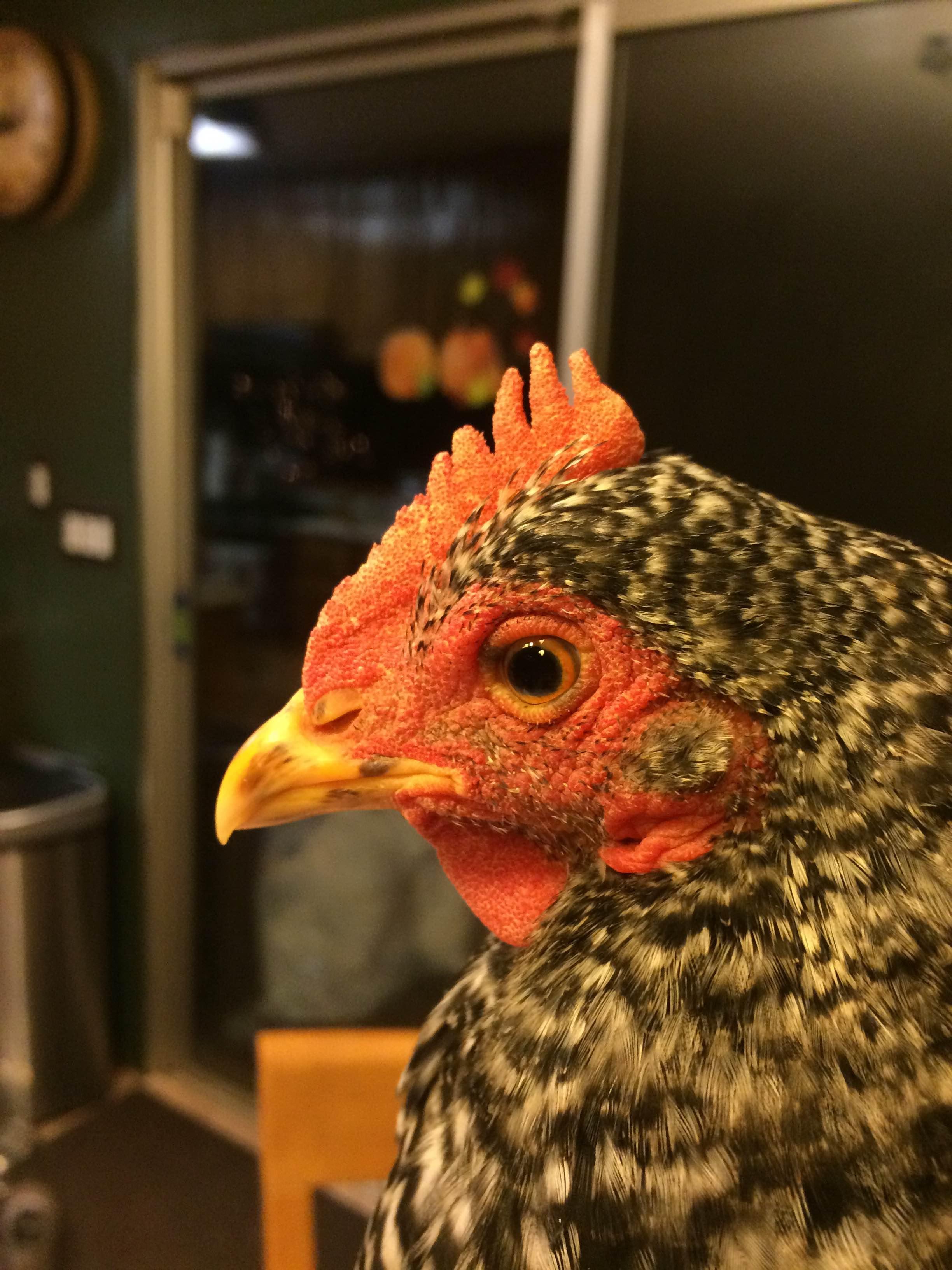Ok thank you! I have only had chickens for a short time and with all the recent tragedy with my flock, the one I have left is important to me to keep alive and healthy. She is thriving being an inside chicken for now. She is eating and drinking regularly and grooms like it's her job in life. She is kind of inactive. She just wants to perch and not move much. I have to take her off her perch three times a day usually to eat and drink, she eats her fill 5-10 minutes, and when she is done, she goes back on the perch. I know she was a pretty inactive chicken when outside too so I am not too concerned. And when it isn't raining she will go outside during the day light so hopefully she will get more exercise when that happens. Thank you!!! On average, how detrimental is a lack of exercise to a chicken?
I wasn't aware of previous problems in your flock. It is obvious you really care for this Barred Rock hen

Chickens are social creatures and that is what encourages activity. She may just go back to the perch out of boredom. Sunlight stimulates activity too, which lessens in Winter. Inactive chickens are prone to a condition called fatty liver disease. You can benefit the bird by periodically using a specific supplement for that once a week during moult or lack of activity. The supplement is Lewerstim, and comes in liquid or tablet form. It is composed of B vitamins, thioctic acid and other beneficial nutrients for liver support. Poultry vitamins and probiotics would also be beneficial in a soluble powder 2 days a week, aside from Lewerstim once a week. Avoid overfeeding or excessive "treats". Provide grit and oyster shell with a good quality layer ration.
Lewerstim: http://www.pigeonsproducts.com/index.php?route=product/search&keyword=lewerstim


